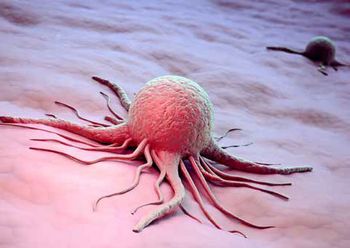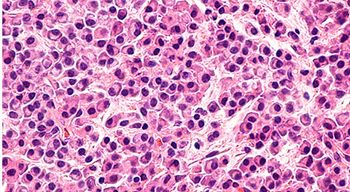
Patients with a higher likelihood to develop BRCA 1 or BRCA 2 mutations are slipping through the cracks, making testing for these mutations a vital part of any breast cancer treatment plan.

Patients with a higher likelihood to develop BRCA 1 or BRCA 2 mutations are slipping through the cracks, making testing for these mutations a vital part of any breast cancer treatment plan.

Malnutrition is a potentially fatal adverse event that many patients undergoing treatment for cancer will face, but it's an adverse event that can be dealt with ahead of time during the first visit with an oncology nurse.

With the approval of 2 new JAK inhibitors for the management and treatment of myelofibrosis, the space is undergoing a new progression, with lots of questions left to answer.

At the 2019 World Conference on Lung Cancer, an NSCLC expert weighed in on the usefulness of cell-free DNA-based testing versus traditional tissue testing for genomic sequencing.

In 2019, 18,000 patients will die from metastatic urothelial cancer, but a new priority review recently granted to enfotumab vedotin shows promise for future treatment of patients with the disease.

Throughout all of the cancer landscape, there are racial disparities in the way patients are treated, and for mesothelioma patients, those disparities can make the difference between life and death.

Targeted therapies for patients with EGFR-mutated and HER2-positive NSCLC have yet to see widespread success, but these 3 novel therapies, presented at the 2019 World Conference on Lung Cancer, show promise for this patient population.

Treating patients with multiple myeloma can be difficult, but in the past several months there have been a large number of promising updates to potential new combinations of treatment.

Two different randomized clinical trials not only validated the value of annual lung cancer screening in patients, but also can open the doors for vital smoking cessation talks.

At the 2019 Annual ASCO meeting in Chicago, Oncology Nursing News got the chance to speak with Martha Raymond, CEO and founder of the Raymond Foundation, and executive director at the GI Cancers Alliance.

With more people surviving long after their cancer diagnosis, there is also a heightened risk of developing chronic health conditions.